BOARD OF DIRECTORS
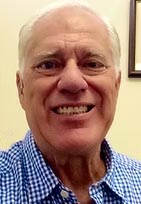
JIM CICCIARELLI, PhD
James Cicciarelli is the director of two HLA labs in California, the VRL-Eurofins HLA Laboratory and the Sharp Hospital HLA. He has more than 30 years of experience and is board certified as an HCLD (ABB) and is licensed in histocompatibility and immunogenetics in California, Florida, and New York. He is a Clinical Professor of Urology, Surgery, and Pathology at the USC Keck School of Medicine, (primary appointment in Urology) and the author of over 100 scientific articles and 30 book chapter reviews. He serves on the Board of the Medical Advisory Committee for Sharp Hospital, San Diego, and LifeSharing OPS. Dr. Cicciarelli received his BS in biology from Tulane University; his MS in biology and chemistry from Southern Illinois University, Edwardsville; and his PhD in immunology from Southern Illinois University, Carbondale. His current interest and research activities include IgG subclass specific assays; siRNA regulation of HLA genetic expression; AlphaFold 2 for comparison of HLA proteins; virtual and flow crossmatch deceased donor assays; immunobiology of transplant rejection; histocompatibility and transplant survival; HLA disease association and mechanism; the immunoregulatory role of HLA molecules; and clinical diagnostic and prognostic tests for transplant recipients and/or candidates.
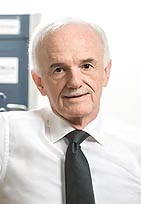
PHILIP F. HALLORAN, MD, PhD
Philip F. Halloran received his MD from the University of Toronto and his PhD in immunogenetics at the University of London. He was on the faculty of the University of Toronto before moving to the University of Alberta as Director of Nephrology. He was the founding editor of the American Journal of Transplantation and is currently a Distinguished Professor of Medicine at the University of Alberta and holds the Muttart chair in clinical immunology. His research has focused on the molecular phenotype of organ transplant rejection and organ injury, and the translation of that knowledge to diagnostic systems to change care. He has published 355 original peer-reviewed papers and has trained many fellows now on university faculties around the world. Dr. Halloran’s research program in clinical molecular immunology combined gene-wide molecular measurements with advanced machine learning algorithms to discover the molecular basis of disease states in human organ transplants as well as primary organ diseases. His team has developed a new diagnostic system for organ transplant biopsies using microarrays, the Molecular Microscope Diagnostic System (MMDx). He is an elected member of the American Society for Clinical Investigation, a fellow of the Royal Society of Canada, and an officer of the Order of Canada.
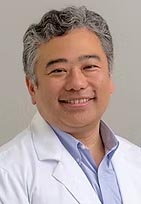
NORI KASAHARA, MD
Noriyuki Kasahara graduated from Tokyo Medical & Dental University in 1986 and completed his post-graduate clinical residency and board certification in laboratory medicine/clinical pathology at the University of California, San Francisco (UCSF), where he also obtained his PhD in 1994. From 1996 to 2002, he was on the faculty at the Departments of Pathology and Biochemistry & Molecular Biology and the Institute for Genetic Medicine at the University of Southern California (USC), before being recruited to the University of California, Los Angeles (UCLA), in 2003. Until 2014, in addition to being a tenured Professor at UCLA with joint appointments in the Departments of Medicine and Molecular & Medical Pharmacology, Dr. Kasahara was Director of the UCLA Hepatitis Screening Laboratory in the Digestive Diseases Division, and also established and directed the UCLA Vector Core & Shared Resource in the Jonsson Comprehensive Cancer Center. From 2014 to 2018, he served as Co-Leader of the Viral Oncology Program while a faculty member at the University of Miami. He was recruited back to UCSF and is Professor and Alvera L. Kan Endowed Chair in the Departments of Neurological Surgery and Radiation Oncology. He also serves as Associate Medical Director of the VRL Eurofins HLA Laboratory in Los Angeles and is a member of OneLegacy’s Board of Advisors and Chair of its Histocompatibility Committee. As an expert on genetic engineering and gene delivery vector technologies, Dr. Kasahara has authored over 150 peer-reviewed research articles and has served on numerous review panels and advisory boards, including the National Institutes of Health (NIH), Cancer Research UK, American Society of Gene & Cell Therapy (ASGCT), and Japan Society of Gene & Cell Therapy (JSGCT).

NATHAN LEMP, PhD
Nathan Lemp received his BS in chemistry from the University of California, Berkeley, and his PhD in molecular and medical pharmacology from the University of California, Los Angeles. He has authored scientific articles and book chapters in the fields of oncology, molecular biology, immunology, and viral gene therapy. In 2011, Dr. Lemp joined the MNIT Immunogenetics Laboratory, where he conducted both clinical testing and basic research and oversaw grant applications for both NIH and private funding. Dr. Lemp is currently a Histcompatibility Director at VRL Eurofins HLA Laboratory in Los Angeles. His research interests are histocompatibility testing and ex vivo modification of organs for transplantation.
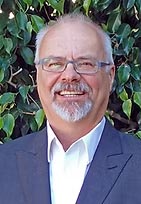
MAREK NOWICKI, PhD
Marek J. Nowicki is an internationally recognized expert in persistent viral infections. His scientific career began when he was a research fellow at the Medical Academy in Poland in 1976. Later, at the Department of Microbiology at Christian Albrecht University in Germany, he developed and applied cellular immunology assays to evaluate virus-specific immunity. During the same year that French and American researchers discovered HIV, he was invited to join the liver diseases research team studying HBV and NANB (HCV) infections at Huntington Memorial Hospital in Pasadena, California. Shortly thereafter, in 1985, he joined the University of Southern California (USC) where he remained on the faculty until 2013. His research at USC involved all aspects of transfusion-transmittable infections, the immunology of bone marrow rejection, and the mechanisms of T-cells regulation. For over a decade, he has been involved in the research of transplant transmitted infections. He is Research Director for the Viracor IBT Donor Screening Laboratory and the MNITF Director of Transplant Research, in Los Angeles. He is the author of more than 100 publications and presentations at national and international scientific meetings.
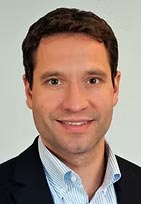
HARALD C. OTT, MD
Harald C. Ott is a thoracic surgeon at the Massachusetts General Hospital (MGH) in Boston, Associate Professor in Surgery at Harvard Medical School, and Director of the Center for Organ Engineering at MGH. After graduating from medical school in Innsbruck, Austria, he trained in cardiac surgery at the University Hospital Innsbruck. After a research fellowship at the University of Minnesota, he trained in general surgery and cardiothoracic surgery at MGH, and ultimately joined its staff. In parallel to his clinical work, Dr. Ott built a highly innovative, multidisciplinary research group around organ engineering and regeneration. His main contribution to the field was the invention and refinement of perfusion decellularization of solid organs and its successful application to heart, lung, kidney, pancreas, small bowel, and composite tissues. In recent years, Dr. Ott’s team has ventured further to include stem and developmental biology projects to leverage developmental cues to generate functional tissue grafts from patient-derived cells. The ultimate goal is to replace lost organ function with personalized grafts that would not require immunosuppression.
